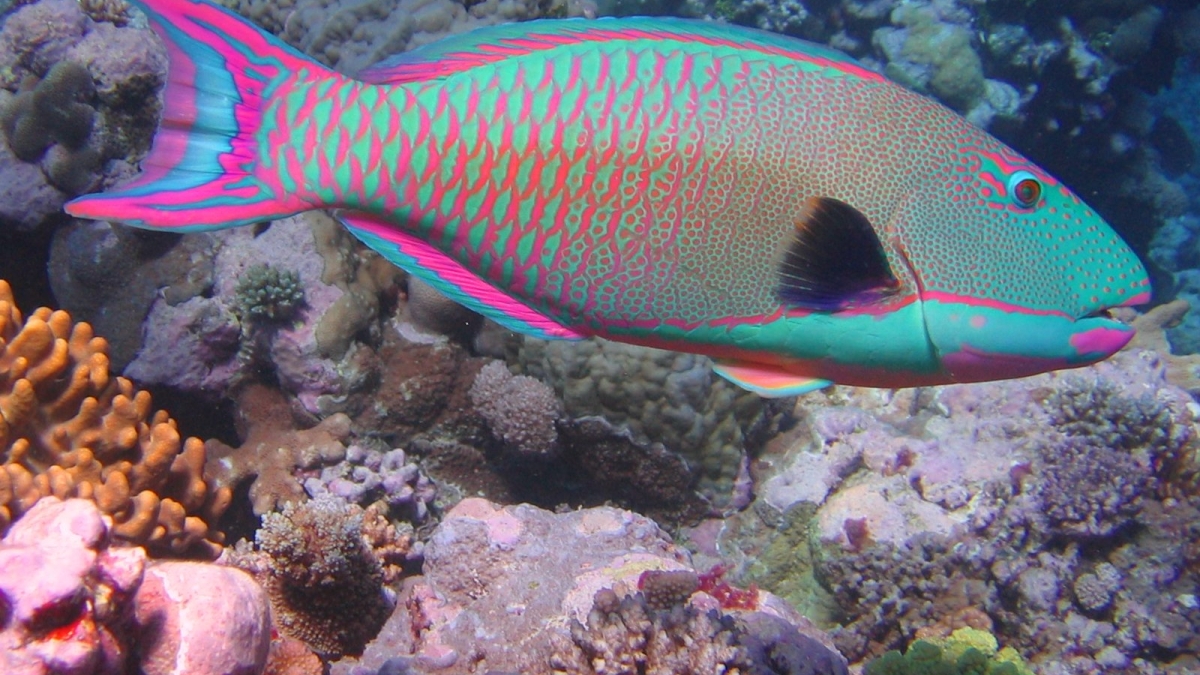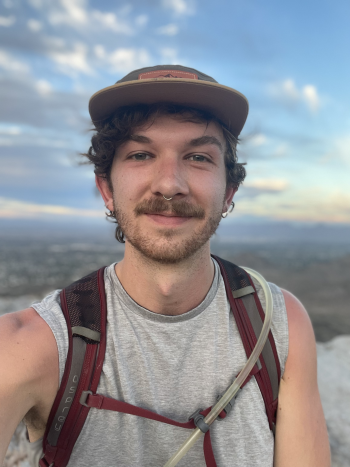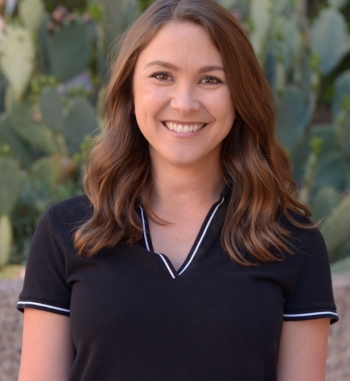Diversifying course content in biology class increases LGBTQ+ students' sense of belonging
ASU alumni revised the curriculum of the Animal Behavior course to make it more inclusive

Parrotfish like this one are hermaphroditic, meaning they switch between being male and female at different points in their lives. The revised animal behavior curriculum included examples of sexual diversity in other species like this one to expand students' ideas of what is "natural" when it comes to sex and gender. Image via Wikimedia Commons.
More people identify as LGBTQ+ than ever because of increasing social acceptance that, at long last, is allowing more people to feel safe coming out. Despite that increased acceptance, though, LGBTQ+ people still face lots of discrimination, with many people still thinking that queerness is just not “natural."
ASU alumni Danny Jackson set out to combat that myth by revising the content of an Animal Behavior course, which teaches students about behaviors found in nature. As a queer person, he felt alienated by some of the course content they were supposed to be teaching to others. The course textbook reinforced ideas like biological sex being fixed, and that being male or female dictates the way you behave in your role in society – biological myths that have been debunked, but are still often taught, even if only implicitly. Jackson wanted to give students something better.
Jackson recruited a team of other graduate students to think through how to design new course content. They applied for and won an Inclusive Teaching Fellowship through the School of Life Sciences, an award funded by the Howard Hughes Medical Institute, to revise the Animal Behavior curriculum.
“We spent a year taking inclusive teaching courses and reading up on the history of animal behavior. We came to the conclusion that the field itself, as all scientific fields, carries with it a history of social inequity and that shapes the knowledge that’s been created in this field, like perspectives of sex and gender that aren’t necessarily true,” Jackson explains.
“We decided that instead of removing any of the content of the course, we wanted to add in voices who are critical of that content or present new perspectives that’s obviously not included.”
They expanded the course to highlight topics like hermaphroditism, or many organisms’ capacity to switch between being male and female throughout their lives, as well as the history of racism and sexism in the field of animal behavior. Afterwards, they had students critically reflect on aspects of the original course content, like the methodology their textbook taught, the relationships between animals it portrayed, and its expectations of human behavior.
Jackson partnered with Dr. Katelyn Cooper, an assistant professor and biology education researcher in the School of Life Sciences to assess how the revised course affected students. The results of the recently published study showed that the new curriculum helped LGBTQ+ students feel a greater sense of belonging in the classroom compared to the original course content. That’s especially significant in a biology class, as LGBTQ+ students disproportionately drop out of STEM fields.
Additionally, the new course content reduced students’ biases of sex and gender, and did not alienate any non-LGBTQ+ students, the study found.
“It broadened [students'] perspectives of sex and sexuality,” explains Cooper. “People assume that LGBTQ+ inclusive curriculum comes at the risk of making some religious students feel like they don't belong. And so, it was really neat to see that that wasn't at all the case. It did disproportionately increase the belonging of LGBTQ+ students, but it didn’t harm any other student group.”
Cooper, who was highlighted as an LGBTQ+ leader on NBC’s Pride 30 List, runs a Biology Education Research lab that studies students’ mental health and the experiences of LGBTQ+ students. When she started studying the experiences of LGBTQ+ students ten years ago, few students felt comfortable coming out, let alone questioning their course content. For that reason, she finds it especially encouraging that the project to revise the animal behavior curriculum was started by a graduate student.
“Jackson really led a charge to reform.” Cooper shares, “He really gets all the credit for the idea, and for working to say we can do better.”
Students learned to both question their own assumptions and see that science, too, can be biased – something that both Jackson and Cooper feel is necessary to make STEM and society at large more inclusive to LGBTQ+ people.
“It makes me feel encouraged that we're moving in the right direction,” Cooper shares of the experience working on the study.
Jackson feels strongly about it, too: “It’s the most meaningful thing I did during graduate school."



